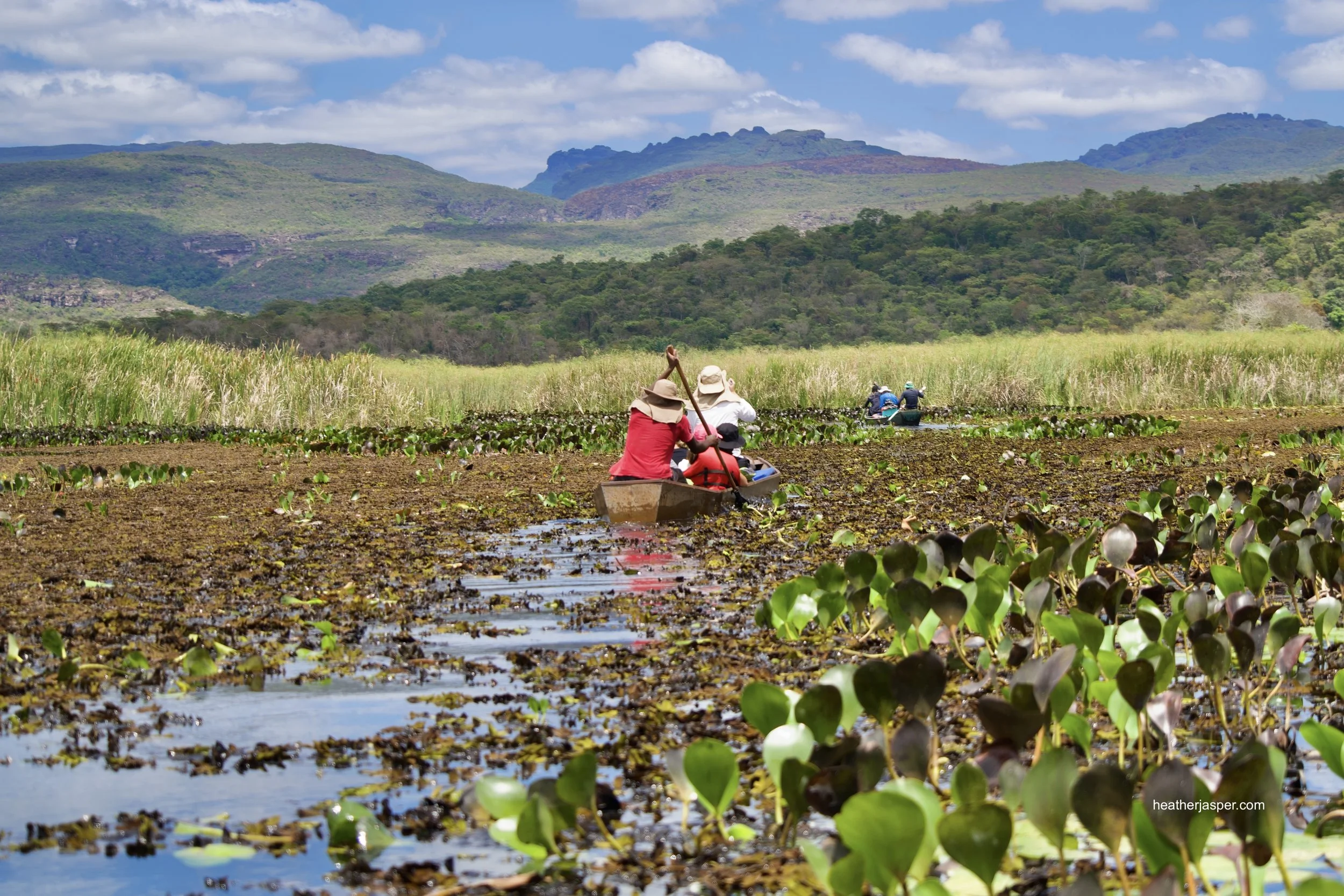Travel Tip 82
How to find community tourism?
I visited families who have collected salt for generations at Salinas Grandes in Argentina.
First, what is community tourism?
These are activities and places you can visit where everything is designed by the community, led by the community and what you do and spend benefits the community. Community tourism centers the people and place you visit, and gives you the opportunity to learn about them, rather than experience what a corporate company thinks that you’ll want to do. It’s also called community-based tourism, but I think that term is fading.
Celestina welcomed me into her home in Tumbaya, Argentina to teach me about local culture and herbalism.
Why should you try community tourism?
When your experiences are led by the community you’re visiting, you’ll learn much more about their culture. You’ll get to taste what they eat, see their homes, learn about their holidays and celebrations, and sometimes you get to participate in the art they make, their music and how they dance. I can’t overstate how enriching it is to spend your vacation with a community in a foreign county, and how much better you’ll understand the place you’re visiting than if you stay at an international chain hotel and only go to “bucket list” spots in busses with other tourists.
Celestina (above) taught me about the medicinal herbs her family has always gathered in the mountains of northern Argentina. We made tea together, baked cake with purple corn meal together, and she taught me so much.
Community tourism is especially important in rural and less developed areas where previously only outside companies brought tourists. That’s when most of the money that tourists spend goes to the company and benefits people in cities far away. It’s infinitely more sustainable if the community gets most of the income from your visit to their home.
Without an outside company taking a cut of what you pay, the community has more money to invest in places for tourists to eat and stay. For a rural community to set themselves up to welcome tourists, they need to build hotels or add extra rooms to existing houses. Besides beds, those rooms probably need their own bathrooms and plumbing can be expensive. Also, community members need training in how to run a commercial kitchen and how to cook things that tourists want to eat, even if they’re cooking versions of their grandma’s recipes. When a family has income from housing or feeding tourists, they can invest in their children’s education and learning languages. Eventually, the guides who take you to the community can be from there, even if you don’t speak their language.
In Lençois, Chapada Diamantina, Brazil, I met some local guides who take tourists to their villages and also give guided canoe rides through the surrounding marshes to waterfalls and other beautiful spots.
How to find community tourism?
This takes more sleuthing than finding a tour agency that will book you tours in several different places. However, if you do work with a tour agency, ask them what community-based options they offer. You don’t always have to book everything yourself for a community to benefit from your visit, but you do need to ask how the community benefits if you’re not paying them directly.
One of the best ways to find community-based tourism is to start learning about the place you want to visit. Look for the names of towns in the area you want to go and search for local companies, either on google maps or search for websites. Many communities don’t have the same access to technology as companies from big cities, so try looking on social media. I’ve found lots of communities who host tourists on both Facebook and Instagram. It takes time to sift through the big companies with the flashy websites, but it’s absolutely worth the effort to find the family-run B&B or the fishermen who let you join them for a day – like I did at Atenas Beach. Scroll down for my Atenas Beach blog!
There are also some great resources out there from sustainable travel creators and writers. One of my favorites is Shivya Nath, partly because she came to Cusco last year but also because she writes so much about sustainable travel. This week she published an article about community tourism that I highly recommend. Read Shivya’s article here!
Want help finding community tourism for your trip? Contact me to arrange a phone call!
I spent the morning with a scallop diver and two other fishermen at Atenas Beach, Paracas, Peru.
Blogs
I have two new blogs for you this week!
The first is about my morning gathering shellfish with the fishermen of Atenas Beach in Paracas, Peru. The families who have fished the Pacific coast near Paracas for generations have recently banded together to create Tour Vivencial Atenas Beach. Read this blog about Atenas Beach to see why I loved it and how you can visit. (Turismo vivencial is Spanish for community tourism).
The second blog is my trip to Huacachina, a desert oasis and massive area of sand dunes that’s right next to Ica, Peru. This was way cooler than I expected and if you’ve seen posts about Huacachina that make it look like a tourist trap, read my new Huacachina blog. It doesn’t have to be a crowded tourist trap!
I was with Anselma Calsin for her birthday, so when she insisted on dressing me up I just said yes.
Article
Community tourism on Amantaní Island
Amantaní Island is one of two Peruvian islands on Lake Titicaca. (The others belong to Bolivia). For decades tour companies took advantage of islanders and gave them a pittance for each tourist that visited the island, literally $2 per person. Families had to stretch that $2 to cover lunch and dinner, housing, and breakfast the next morning. Click on the article title above to learn how the islanders fought back and how you can visit Amantaní Island with community tourism. This was my first article published with Fodor’s Travel, back in 2021 and I’m still in contact with the community. One of my friends there, Alexa, who’s in the purple sweater below, named her daughter after me last year.
Anselma got her whole family together for her birthday, but only made me dress up. Alexa is on the right with her father.








